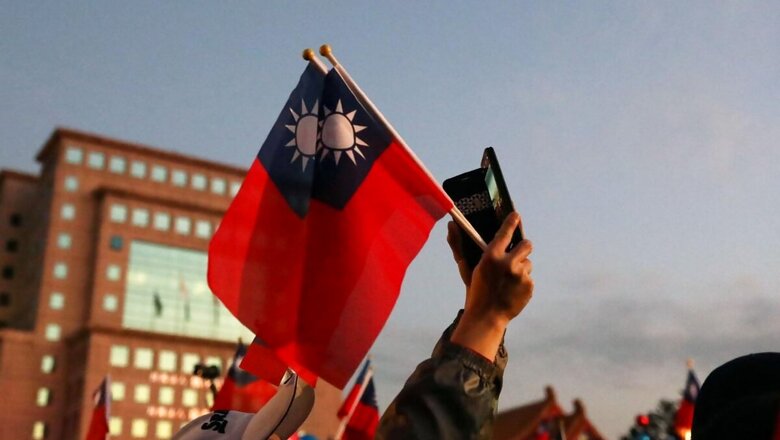
views
“There are many people in the world who really don’t understand, or say they don’t, what is the great issue between the free world and the Communist world. Let them come to Berlin.”
–John F. Kennedy, Berlin, June 22, 1963
Introduction: Where the Rubber Hits the Road
During the Cold War between the US and the erstwhile USSR, no matter what the strategic issue, Berlin seemed to be the most likely place on the earth where the contest would inevitably be played out. Like a canary in a coal mine, the success or failure of the economically prosperous but strategically imperiled enclave of West Berlin functioned as a sort of geopolitical thermometer, highlighting whether the capitalist West or communist East had the overall advantage.
After a number of fraught years, the outcome became clear. By 1958, stifled by a grey system of endless, soulless, repression and a sclerotic economy, people (ironically to paraphrase Lenin) were voting with their feet. Two million people fled East Berlin for the relative paradise of the West, including large numbers of the more well-educated and the young. It was as an effort to halt this real-world embarrassment that the then Soviet leader Nikita Khrushchev first constructed the Berlin Wall on August 13, 1961, but the damage was done.
Penning in one’s people to prevent their escape is not a good look for a society that claims to be the harbinger of the future. Over the decades to come, the increasing disparity between East and West Berlin became the demonstration effect of the Cold War writ large; an irrefutable proof of the West’s superiority over the repressive and unimaginative Soviet communist system.
At the dawn of today’s ‘Second Cold War’ (this one is focused on the superpower rivalry between the US and China), Taiwan has taken the place of Berlin as the new era’s most important hot spot. Be it the issues of geopolitics, macro-economics, or democracy, all roads lead back to Taiwan. It is nothing less than the stage on which the drama of the Second Cold War will be played out.
Taiwan’s Immutable Geostrategic Importance
There can be little doubt that Taiwan remains one of the two keys to hemming in mainland China, much as has always geographically been the case. Think of Communist China as a bottle with two narrow bottlenecks at either end: To the south is the Strait of Malacca (controlling access to the Indo-Pacific), to the north is Taiwan, anchoring the first island chain off of mainland Asia. To punch their way free to the wider world, Beijing must control one or the other bottleneck, or live in perpetual fear of antagonistic powers having the ability to shut it down in geoeconomic and geopolitical terms.
At present, Beijing controls neither bottleneck, nor is its rapidly improving navy (yet) a match for US maritime supremacy. This geopolitical reality explains much of the impetus for Beijing’s Belt and Road Initiative (BRI), an overland effort to make this old, vexing, geostrategic handicap moot. However, plagued by cost overruns, endemic corruption, and voracious (in some cases) lending practices, the BRI gambit has lost a lot of its steam.
Taiwan still sits as an unsinkable pro-American aircraft carrier, bottling in Beijing from the north. However, if Xi Jinping’s regime were ever to gain control of Taiwan, America’s first island chain defence would be destroyed and Beijing strategically unbound. Taiwan is nothing less than the key to containing Communist China.
The Indispensable Chip Maker
If Taiwan is central to America’s geopolitical calculations in the Indo-Pacific, it is also assuming an increasingly pivotal role in the global economy. The Taiwanese firm, Taiwan Semiconductor Manufacturing Company (TSMC), is the world’s largest single producer of semiconductors, accounting for a staggering 84 per cent of the most advanced computer chips.
Recent chip shortages—caused by the pandemic crisis—is just waking the world up to the central role Taiwan plays in today’s global economy. For chips are not just used in computers; instead, they are the brains undergirding a whole range of common products.
For example, in terms of car production, they are pivotal, as vehicles increasingly rely on internal systems to do more of the thinking for drivers. As of April 2021, Ford announced—that due to the global chip shortage—it would be able to construct only half its normal number of vehicles through the end of June. As a direct result, car prices in the US skyrocketed by fully 10 per cent between March and April of this year. This precious, precarious single industrial input is nothing less than a linchpin of the world economy. And it is dominated by Taiwan.
Alarmed by this, both Washington and Beijing have begun a crash course to lessen this dependence on a single source for chips, but changing supply chains takes time. TSMC itself, in an effort to mitigate political risk, is presently building a new semiconductor plant in Arizona, even as it looks to invest US $2.8 billion in new facilities in Nanjing in mainland China. But all this is years away from fruition, with the American plant not expected to be up and running until 2024, and Beijing yet unable to lessen its semiconductor dependence on Taiwan.
Any disruption of any kind in Taiwan’s semiconductor production would drastically affect the world economy as a whole. Beijing lives in fear—that if the Cold War in the Indo-Pacific were to heat up—much as is true geostrategically, so it is that geo-economically the US-Taiwanese alliance could definitively hem in its ambitions.
Democracy as Demonstration Effect
Lastly, as was also true with Berlin, there is the power of symbolism. A part of the Chinese communist argument is cultural—that the dominant thread of ethnic Han Chinese nationalism is simply incompatible with the Western notions of democracy. This makes the reality of Taiwan—much like the old lesson of a thriving West Berlin—especially galling for the Communist Party leadership.
Sitting just next door, Taiwan (which is demographically 95 percent Han) has evolved from its post-1949 authoritarian ways under Chiang Kai-shek into a fractious, if healthy, democracy. Since 2000, for the past generation, there has been a regular and peaceful transfer of power between the major Kuomintang (KMT) and Democratic Progressive Party (DPP), much like any advanced democratic state.
So, in complete opposition to Communist Party theory, Taiwan possesses both a first-world economy and is an established democracy, making a lie of Han ethnic exceptionalism to the larger desire for democratic government. This, as much as the hard power components of the puzzle, makes Taiwan the new Berlin, and an entity Xi Jinping simply cannot live with in the medium term.
Conclusion: The Need for Strategic Clarity
For these fundamental geopolitical, macro-economic and geostrategic reasons, Xi—much like Khrushchev before him—has made it clear that he cannot abide the continued existence of a pro-American, free, and democratic Taiwan. President Xi has forcefully stated that, although Beijing desires reunification between Taiwan and the mainland to occur peacefully, its reabsorption will take place in any event. Given that Beijing’s fiction of ‘one country, two systems’ has been exposed by the brutal crackdown in Hong Kong, there seems little reason not to take him at his word.
With the ending of the fiction that Taiwan will be benevolently absorbed by the Chinese Communist Party, another ambiguity should be done away with as well. Now is the time for the US to make it crystal clear to Beijing that it will directly come to Taiwan’s defence should Beijing threaten it, attempt to dominate it, or try to invade America’s ally. Taiwan is without doubt the new Berlin of the Sino-American Cold War. It is up to America to rediscover the steel and vigour that John F Kennedy showed over Berlin and defend it and the rest of the free world.
This article was first published on ORF.
Read all the Latest News, Breaking News and Coronavirus News here. Follow us on Facebook, Twitter and Telegram.




















Comments
0 comment